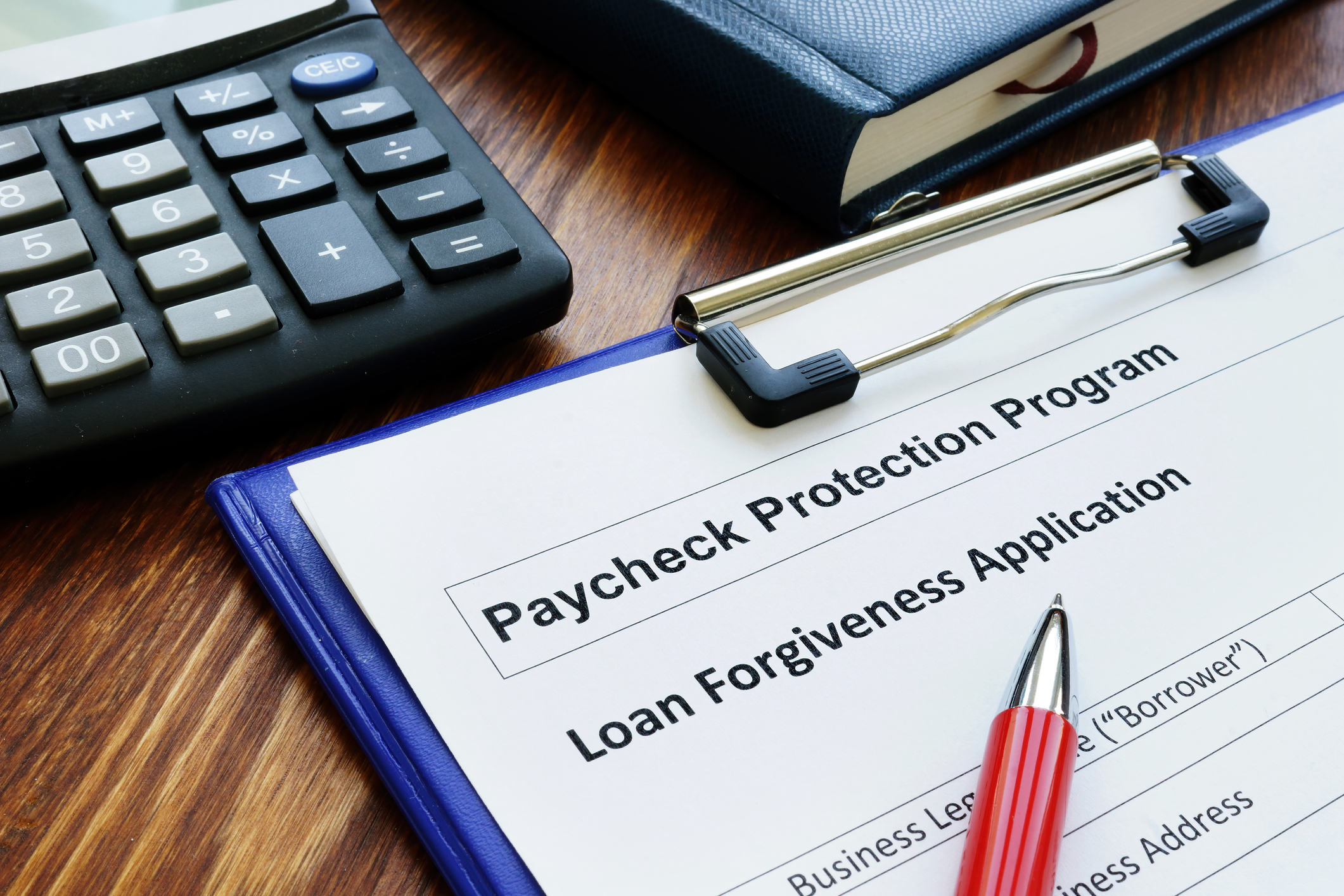We have received questions on the tax consequences of the Paycheck Protection Program (PPP) loans that clients have taken out in connection with the coronavirus (COVID-19) crisis. Many of these loans have been subsequently forgiven.
The rules are complicated but here is a summary: An eligible recipient may have a PPP loan forgiven in an amount equal to the sum of the following costs incurred and payments made during the covered period: (a) payroll costs; (b) interest (but not principal) payments on any covered mortgage obligation (for mortgages in place before Feb. 15, 2020); (c) any payment for any covered rent obligation (for leases that began before Feb. 15, 2020); (d) covered utility payments (for utilities that were turned on before Feb. 15, 2020); (e) any covered operations expenditure, (f) any covered property damage cost, (g) any covered supplier cost, and (h) any covered worker protection expense. You can contact our office or your CPA for more information about what eligible expenses include.
As to the covered period: Your covered period would normally have been the 24-week period beginning on the date you took out the loan (and ending no later than Dec. 31, 2020, if that was before the expiration of the 24-week period). If you received a PPP loan before June 5, 2020, you could elect a shorter 8-week covered period. If you did not elect the 8-week period and instead used the longer 24-week period, you had to maintain payroll levels for the full 24 weeks to be eligible for loan forgiveness. If you didn’t make an election, the 24-week period applies.
An eligible recipient seeking forgiveness of indebtedness on a covered loan must verify that the amount for which forgiveness is requested was used to retain employees, make interest payments on a covered mortgage obligation, make payments on a covered lease obligation or make covered utility payments.
As to the cancellation of indebtedness income: The reduction or cancellation of indebtedness generally results in cancellation of debt (COD) income to the debtor. The common exceptions under Section 108 of the Internal Revenue Code are (a) filing bankruptcy; or (b) showing you’re insolvent. However, the forgiveness of PPP debt is specifically excluded from gross income. Your tax attributes (net operating losses, credits, capital and passive activity loss carryovers, and basis) would not generally be reduced on account of this exclusion.
As to the deductibility of expenses paid by PPP loans: The CARES Act was silent on whether expenses paid with the proceeds of PPP loans could be deducted. The IRS took the position that these expenses were nondeductible. However, the Consolidated Appropriations Act, 2021, enacted at the end of 2020, provides that expenses paid from the proceeds of PPP loans are deductible.
Contact our office or your CPA with any further questions you might have on PPP loan forgiveness.


